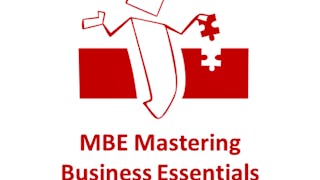Filter by
SubjectRequired
LanguageRequired
The language used throughout the course, in both instruction and assessments.
Learning ProductRequired
LevelRequired
DurationRequired
SkillsRequired
SubtitlesRequired
EducatorRequired
Explore the SCM Course Catalog
 Status: Free Trial
Status: Free TrialSkills you'll gain: Image Analysis, Supervised Learning, Applied Machine Learning, Predictive Modeling, Anomaly Detection, Statistical Modeling, Supply Chain Management, Machine Learning, Computer Vision, Supply Chain, Deep Learning, Classification And Regression Tree (CART), Random Forest Algorithm, Natural Language Processing, Artificial Neural Networks, Customer Demand Planning, Forecasting, Unsupervised Learning, Performance Tuning
 Status: NewStatus: Free Trial
Status: NewStatus: Free TrialSkills you'll gain: Kanban Principles, Sprint Planning, Agile Methodology, User Story, Sprint Retrospectives, Agile Project Management, Agile Product Development, Backlogs, Workflow Management, Lean Methodologies, Product Roadmaps, Prioritization, Release Management, Continuous Improvement Process, Cross-Functional Collaboration, Project Estimation, Estimation

Northeastern University
Skills you'll gain: Process Improvement, Operational Efficiency, Inventory Control, Inventory Management System, Supply Chain Management, Procurement, Capacity Planning, Materials Management, Supply Chain Planning, Demand Planning, Transportation, Supply Chain, and Logistics, Vendor Management, Change Management, Information Technology, Forecasting
 Status: Free Trial
Status: Free TrialSkills you'll gain: Oracle Cloud, Cloud Solutions, Supply Chain Management, Cloud Computing, Cloud Infrastructure, Enterprise Resource Planning, Cloud Services, Supply Chain Systems, Cloud Platforms, Cloud Applications, Supply Chain, Supply Chain Planning, Customer experience strategy (CX), Human Resources Software, Business Technologies, Human Capital, Software As A Service, Customer Relationship Management (CRM) Software, Cloud Security, Procurement
 Status: NewStatus: Free Trial
Status: NewStatus: Free TrialEmory University
Skills you'll gain: Financial Statements, Return On Investment, Business Strategy, Operations Management, Cash Flows, Accounting, Finance, Manufacturing Operations, Supply Chain Management, Business Operations, Financial Analysis, Marketing, Corporate Finance, Strategic Marketing, Promotional Strategies, Business Valuation, Organizational Strategy, Business, Market Dynamics, Product Strategy
 Status: NewStatus: Free Trial
Status: NewStatus: Free TrialMultiple educators
Skills you'll gain: Corporate Sustainability, Environmental Social And Corporate Governance (ESG), Sustainability Reporting, Supply Chain Management, Supply Chain, Operations Management, Manufacturing Operations, Strategic Sourcing, Procurement, Labor Compliance, Engineering Management, Compliance Management, Logistics Management, Business Reporting, Business Leadership, Reverse Logistics, Business Technologies, Supplier Management, Product Design, Waste Minimization

Northeastern University
Skills you'll gain: Quality Management, Lean Methodologies, Process Improvement, Operations Management, Performance Improvement, Supply Chain Management, Business Process, Waste Minimization, Operational Efficiency, Process Mapping, Project Management, Six Sigma Methodology, Healthcare Industry Knowledge
 Status: Free Trial
Status: Free TrialRutgers the State University of New Jersey
Skills you'll gain: Supplier Quality Management, Procurement, Strategic Sourcing, Risk Management, Business Risk Management, Supply Chain, Supplier Relationship Management, Supply Chain Management, Cost Benefit Analysis, Cost Estimation
 Status: New
Status: NewCoursera Instructor Network
Skills you'll gain: Prompt Engineering, Large Language Modeling, OpenAI, Scalability, Generative AI, Data Integration, Artificial Intelligence, Performance Tuning, Application Development, Application Programming Interface (API)
 Status: New
Status: NewSkills you'll gain: Agile Product Development, Sprint Retrospectives, Agile Methodology, Jira (Software), Agile Project Management, Sprint Planning, Project Estimation, Backlogs, Project Management Software, Product Requirements, Product Management, User Story, Estimation, ChatGPT, Team Management, Artificial Intelligence, Prioritization, Continuous Improvement Process
 Status: New
Status: NewSkills you'll gain: Agile Methodology, Sprint Retrospectives, Agile Project Management, Agile Software Development, Team Management, Change Management, Team Building, Backlogs, Kanban Principles, Sprint Planning, Organizational Leadership, Project Management, Communication
 Status: New
Status: NewSkills you'll gain: Scrum (Software Development), Agile Project Management, Sprint Planning, Agile Methodology, Backlogs, User Story, Jira (Software), Project Risk Management, Project Management, Sprint Retrospectives, Microsoft Teams, Continuous Improvement Process, ChatGPT, Prioritization
In summary, here are 10 of our most popular scm courses
- Advanced AI Techniques for the Supply Chain: LearnQuest
- Scrum and Kanban Frameworks Roles and Best Practices: Simplilearn
- Navigating Healthcare Supply Chain Operations: Northeastern University
- Introduction to Oracle Cloud Essentials: Oracle
- Mastering Business Essentials: Emory University
- Sustainable and Resilient Operations and Supply Chains: University of Colorado Boulder
- Intro to Managing Healthcare Supply Chain Operations: Northeastern University
- Global Procurement in a Post Covid World: Rutgers the State University of New Jersey
- LLM Engineering with RAG: Optimizing AI Solutions: Coursera Instructor Network
- Agile Product Owner Level 1 – Certification & Mock Exams: Packt










